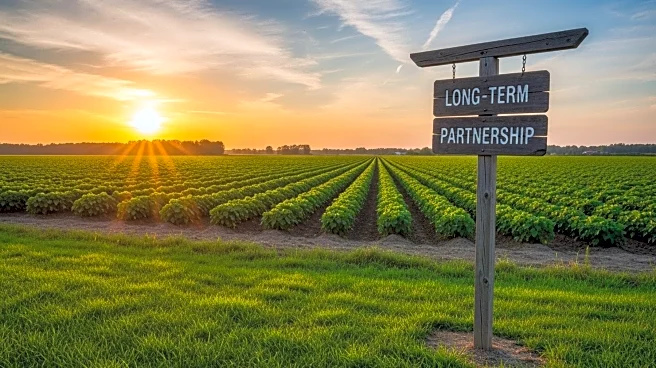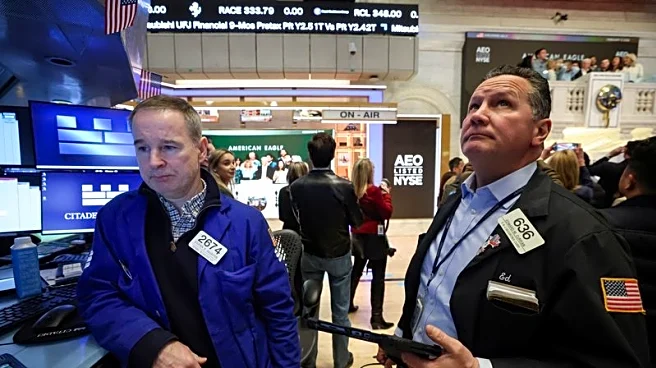What's Happening?
The Agricultural Institute of Marin (AIM) and Marin County have finalized a 40-year lease agreement to establish the Center for Food and Agriculture (CFA) at the Marin Civic Center in San Rafael, California. The CFA will feature two main projects: a permanent outdoor home for the Marin Farmers Market, expected to be completed by mid-2027, and a Food Innovation Hub, slated for completion by 2028. The initiative aims to create a vibrant public space that celebrates food, farming, and community, serving as a national model for climate-smart agriculture and food systems collaboration. The Farmers Market will include infrastructure improvements for vendors and amenities for shoppers, while the Food Innovation Hub will focus on income diversification for farmers and applied agricultural education.
Why It's Important?
The establishment of the CFA is significant for Marin County's economic vitality and environmental leadership. It supports the county's strategic plan for inclusive growth and sustainable job creation, with AIM anticipating an additional $6 million in annual sales and the creation of over 190 new jobs. The CFA will also advance Marin County's climate goals by implementing zero-waste initiatives and promoting regenerative agricultural practices. Additionally, the CFA will enhance food access and equity through programs like CalFresh and Market Match, making healthy food more affordable and widely available. This project represents a commitment to community well-being and a regenerative food future.
What's Next?
Construction of the Farmers Market will begin first, followed by the Food Innovation Hub. The CFA is expected to open in 2028. AIM will undertake significant capital improvements, with $6.8 million already secured for the project. The community can support the initiative by attending AIM's Gather for the Planet event or making donations. The CFA will serve as a resource for food distribution and community resilience, fostering engagement with policymakers and driving policy change.
Beyond the Headlines
The CFA's infrastructure will be fully electric, powered by on-site solar panels, and will feature rainwater harvesting and composting systems. It will serve as a model for public-private partnerships, demonstrating how public land can be used for public good. The CFA will also foster community engagement through cooking demonstrations, food education, and wayfinding signage, elevating programming and guiding visitors.












